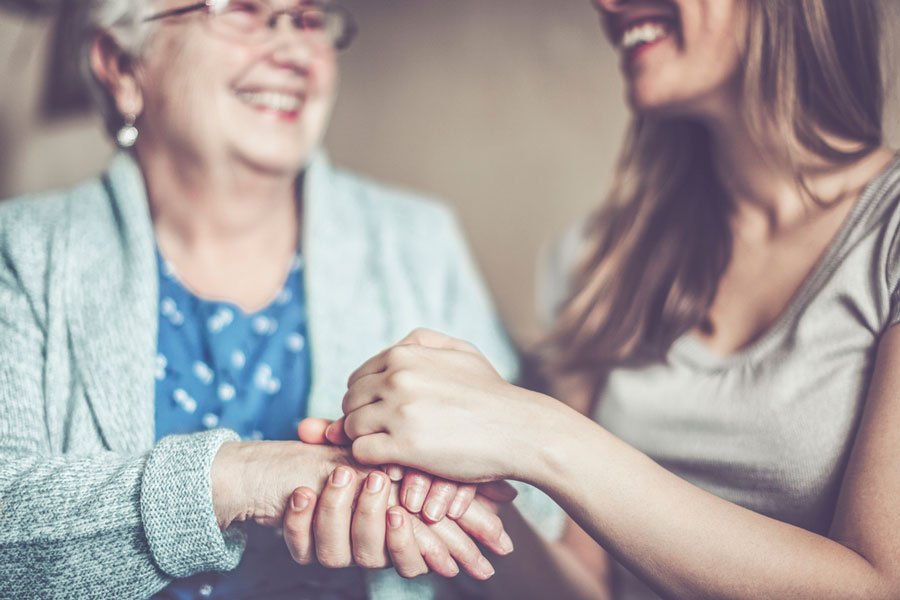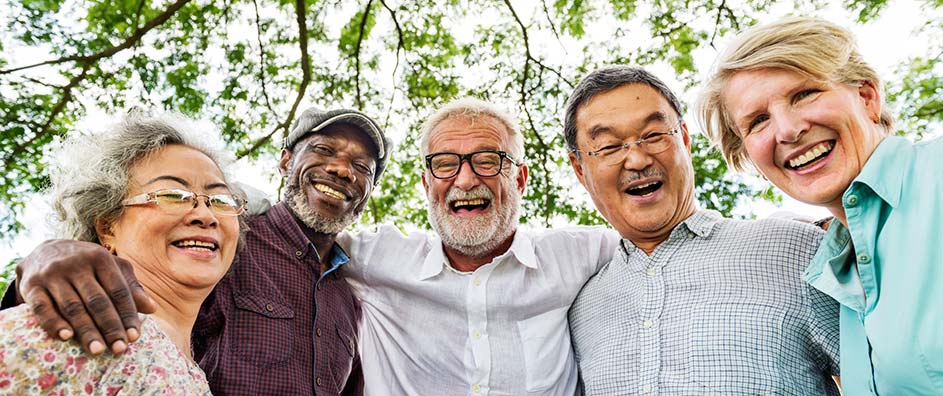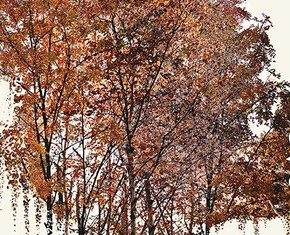The views expressed in our content reflect individual perspectives and do not represent the authoritative views of the Baha'i Faith.
I was in a long line today shopping, so I got out my phone and logged on to Facebook. To my horror, my feed showed a hidden camera video of a beautiful elderly woman being beaten and taunted by her institutional caregiver.
My heart sank, and I started to feel physically and emotionally sick. I had heard about this happening to our elders, in and out of nursing homes, but like any video, when you see it actually happening, it is so much more real and horrendous. I came home and pulled up YouTube and found many more ghastly videos, but I just didn’t have the stomach to watch them. I realized that this sickening phenomena has begun happening at alarming rates. We’re all living longer, so the population of the elderly is on the rise, and national statistics indicate elder abuse is increasing—so I went in search of answers to some basic questions about elder abuse.
What is elder abuse?
Elder abuse is defined as an intentional act, or failure to act, by a caregiver or another person in a relationship involving an expectation of trust that causes or creates a risk of harm to an older adult, someone age 60 or older.
What kind of people perpetrate such brutality on the elderly?
According to HelpGuide.org’s report on Elder Abuse and Neglect:
Caregivers who have an inability to cope with stress (lack of resilience), depression, substance abuse, or those who feel burdened by having to care for an older adult, are most at risk for being abusive.
The report continues:
Caregivers in institutional settings can experience stress at levels that lead to elder abuse. Nursing home staff may be prone to elder abuse if they lack training, have too many responsibilities, are unsuited to caregiving, or work under poor conditions.
What are the signs of elder abuse?
The most common signs of elder abuse are:
- Unexplained signs of injury, such as bruises, welts, or scars, especially if they appear symmetrically on two sides of the body
- Broken bones, sprains, or dislocations
- Report of drug overdose or apparent failure to take medication regularly
- Broken eyeglasses or frames
- Signs of being restrained, such as rope marks on wrists
- Caregiver’s refusal to allow you to see the elder alone
What can we do to help stop elder abuse?
In many cultures, elders get the respect they deserve. In our youth-obsessed society, unfortunately, elders are often disrespected and even abused.
We can all be part of the solution, by watching for the warning signs and intervening if you suspect abuse or neglect. You may observe financial abuse, such as scams, theft, or prescription drug abuse. If you do suspect any abuse, don’t be afraid to report it. Listen to seniors and their caregivers. Call and visit as often as you can and finally, educate others regarding ways to spot and report elder abuse.

Now that we have discussed the blatant signs of elder abuse, let’s delve into the more subtle aspects. In many societies, we have become a generation of youth worshipers—while our most precious resource, our elderly, are greatly overlooked. Often the views of the aging are seen as obsolete. They might not be up on the latest trend or know how to navigate an iPhone, but their years of experience have brought them perception, self-actualization, insight—and hard-earned wisdom:
If the soul identifies itself with the material world it remains dark, for in the natural world there is corruption, aggression, struggles for existence, greed, darkness, transgression and vice. If the soul remains in this station and moves along these paths it will be the recipient of this darkness; but if it becomes the recipient of the graces of the world of mind, its darkness will be transformed into light, its tyranny into justice, its ignorance into wisdom, its aggression into loving kindness; until it reach the apex. Then there will not remain any struggle for existence. Man will become free from egotism; he will be released from the material world; he will become the personification of justice and virtue, for a sanctified soul illumines humanity and is an honor to mankind, conferring life upon the children of men and suffering all nations to attain to the station of perfect unity. Therefore, we can apply the name “holy soul” to such a one. – Abdu’l-Baha, Divine Philosophy, p. 120.
Fortunately, in the Baha’i Faith, as well as in many of the wise indigenous cultures around the world, the elderly are treasured and revered. In those environments, the youth look to the elderly for astute guidance and the compassion that only years of tempering life experience can bring:
When noble life has prepared old age, it is not decline that it reveals, but the first days of immortality. – Muriel Spark
Wrinkles should merely indicate where the smiles have been. – Mark Twain
Since we are all aging and maturing we should respect, value, and care for our beloved elderly as we hope to be treated ourselves one day, and remember:
Youth is the gift of nature, but age is a work of art. – Jerzy Lec
Elder abuse helplines and hotlines
US: 1-800-677-1116 (Eldercare Locator).
UK: 080 8808 8141 (Action on Elder Abuse).
Australia: 1300 651 192 (Elder Abuse Prevention Unit).
South Africa: 0800 333 231 (Age In Action).
Canada: 310 1818 or visit Alberta Elder Abuse for links to local resources.
















Comments
Sign in or create an account
Continue with Googleor